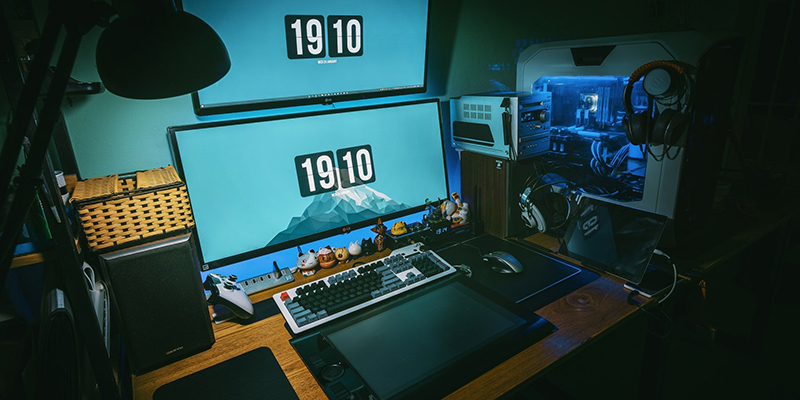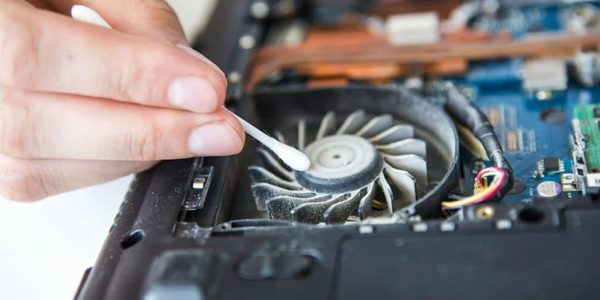How To Maintain And Care For Your Gaming Gear
Gaming gear doesn't come cheap. Whether you've invested in a high-performance gaming PC, a slick laptop, or a whole bunch of controllers, maintaining your gear in mint condition is as critical as purchasing it. Dust build-up, grime, and wear can all impede performance, trigger overheating , or damage your devices over time. But do not worry—I've got you covered. Here's my comprehensive guide to maintaining and caring for your gaming setup so you can game longer, smoother, and brighter.

Why Maintenance Matters
I once considered cleaning my gaming gear a nuisance. Then, one day, in the middle of a raid, my PC began to sound like a jet engine. The dust had clogged the fans, and the system was overheating. After a thorough cleaning, it ran like new. That's when I learned that maintenance isn't just about cleanliness—it's about preventing expensive repairs.
Dust is Public Enemy version 1A when it comes to your gear. It retains heat, puts Stress on components, and can reduce the life span of your devices. Controllers and headsets can break down if they get grime from snacks or sweat. Even cookie clutter, old drivers, or unused files can slow your machine down. Regular maintenance keeps your gear dependable, keeping you ready to game every time.
How To Clean Your Gaming Pc: Step-By-Step Guide
Your gaming PC grinds, and it needs some love. This is how I keep mine humming along:
Dusting: The First Line Of Defense
First, shut down your PC and disconnect it from the mains. Open up the case (after checking your warranty!) and use compressed air to blow out dust from fans, vents and crevices. Pay attention to the CPU and GPU fans—they’re dust magnets. Hold the can vertically to avoid washing liquid, and distance the nozzle several inches away to avoid warping your object.
Cable Management: Aesthetic Appearance With Tangible Benefits
Cables get in the way of trapping heat , which makes cleaning more difficult. Bundle wires with zip ties or Velcro straps. It does this to optimize airflow, which helps keep the components cooler while minimizing fan noise.
Cooling System Check
Games crash from overheating faster than a boss battle. Check that fans spin freely and are not blocked. If your PC gets hot to the touch, you can add more case fans and consider liquid cooling.
Deep Clean The Exterior
Wipe the case down with a microfiber cloth moistened with distilled water. Avoid harsh chemicals—they can ruin surfaces. For persistent grime, a 50/50 solution of isopropyl alcohol and water is adequate.
Controllers And Accessories: Make Them Germ-Free
Your hands come into contact with controllers, mice and headsets all the time, which makes them petri dishes for infectious germs. Here’s my routine:
Sanitize Controllers
Combine rubbing alcohol (70% or higher) and distilled water in a spray bottle. Moisten a cloth and wipe down buttons, joysticks and grips. Clean crevices with a toothpick. Allow it to dry thoroughly before using it.
Headphones And Earbuds
You said sweat and earwax degrade audio quality. Wipe ear cushions with a cloth dipped in soapy water. For in-ear buds, use a soft, dry brush to clear debris. Never soak them — moisture can harm internal parts.
Mouse And Keyboard
Turn it upside down and shake out crumbs. Clean between keys with compressed air. For sticky keys, dip a cotton swab into isopropyl alcohol and gently rub. The same applies to mice: Clean the surface and the sensor lens with a dry brush.
Gaming Laptops: Portable But High-Maintenance
Laptops are portable but harder to service. Here’s how I protect mine:
Avoid Overheating
Laptops draw air through vents that can easily get clogged. Use compressed air to remove dust once a month. If you’re spending hours in a row playing and otherwise working your laptop hard, you can also invest in a cooling pad to increase air circulation.

Handle With Care
Do not eat or drink anywhere near your laptop. Spills can damage internal components. Could you keep it in a padded case to avoid drops when you travel?
Storage Smarts
If you won't use your laptop for a while, charge it 50 per cent and store it in a cool, dry place. Batteries, whether full or empty, also degrade over time.
Keep Your Systems Healthy With Regular Software Maintenance
It isn’t just the hardware that needs work. Keeping software up and running is just as important:
Update Drivers And Os
Out-of-date drivers might lead to crashes or poor performance. Configure your system to auto-update or check manually each month. Game-specific adjustments in tools like NVIDIA GeForce Experience or AMD Software Adrenalin Edition optimize the settings.
Declutter Your Storage
The unused files take up space and make your PC sluggish. Use native utilities such as Disk Cleanup or third-party programs to delete junk files. Get rid of old games and apps you don’t use anymore.
Virus Scans
Malware can be hidden in downloads or suspicious links. Perform regular weekly scans using trusted antivirus software. Avoid pirated games—they're usually rife with viruses.
Storage And Environment: Protect Your Investment
Where you store your gear matters. Dusty basements or dank rooms are no good. Here’s my advice:
Location, Location, Location
Keep your setup cool, dry, and out of direct sunlight. Have a desk with cable management to limit tripping hazards and allow better airflow.
Humidity Control
Moisture can damage internal components. If you’re in a humid climate, run a dehumidifier. Packets of silica gel in storage boxes also absorb moisture.
Pet And Child Proofing
Pets or curious kids can knock over drinks or pull out cables. Hide wires with cable sleeves, and keep snacks away from your gaming zone.
When To Call In The Pros
Some issues require expert help. If your laptop crashes continuously, the fans sound nonstop, or the PC won't charge, don't try a home repair. Go to a certified technician—they've got the tools to diagnose problems safely. There's often a swift workaround for software bugs on general tech forums like Reddit's r/techsupport.
How To Care For Your Gear
Cleaning gaming gear isn’t sexy, but it’s good to do. A clean, well-maintained rig is faster and lasts longer, costing you money on both ends. Set a monthly reminder on your phone for cleanings, and incorporate maintenance into your gaming ritual.) Your future self (and your wallet) will thank you.